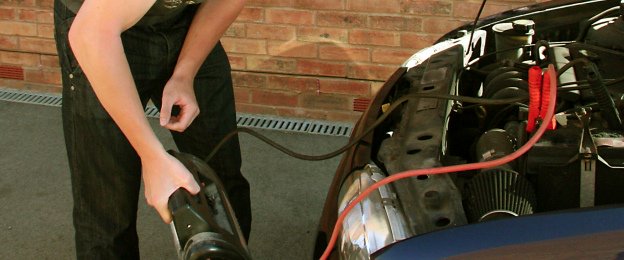
If you've just turned 16 and gotten your first car, or if you've left a large city and had to buy a car because you no longer have access to public transportation, you may not know exactly what to expect. It's one thing to know how to drive a car, but it's quite another to know all of the things that come with owning a car. Here are five things that all car owners need to know in order to handle emergencies or keep their cars running longer.
Know How to Change a Tire This one is pretty basic, but many people simply don't know how to change a tire. Blowouts or punctures due to over- or under-inflated tires happen all the time, sometimes far from the nearest gas station or towing company. Changing a tire is fairly simple if you know how to use a jack. Find a smooth, well-lit area. Set your parking brake, and then jack up the car. You'll need to have a lug wrench on hand to remove the nuts from the tire. Remove the tire, place the spare on the axle, and re-attach the lug nuts. Make certain they're tight.
Know How to Check Your Tire's Air Pressure To avoid a blowout in the first place, make certain your tires are always at the optimum air pressure. You can buy a inexpensive tire pressure gauge at any auto store. Check the pressure when the tires are cool--before driving or an hour after driving. You can adjust the air pressure at most gas stations for free.
Know How to Use Your Jumper Cables If your car won't start, it may simply need to be jumped. To do so, you'll need a set up jumper cables and another car. Jumper cables are usually color coded--one set of clamps are red, one black. Know which goes to the positive pole (the red) and which goes to the negative (the black). Also know which pole is which on your battery (they should be marked).
Know How to Check Your Oil, Water, and Other Necessary Fluids There are various fluids that your car's engine requires. You should know how to check all of them. Oil, coolant, transmission fluid, water, antifreeze…all of these can be checked pretty easily. You should know how to measure each and know when each is low. If you do see that one of your fluids is low, you'll need to know how to refill it. You'll need to know what oil and other fluids your car takes, too. It's also important to carry extra water during the hot months (or every month here in the Tempe area!) since your car may run out more quickly than at other times.
Know How to Get Help If you have a roadside assistance program through your insurance or a program like AAA, be sure you know how to contact them. You should have the phone number programmed into your cell phone or stored in your glove box. If you have a service such as OnStar, be sure you know how to activate it. These services do you no good if you don't know how to use them in an emergency.
Questions? Give us a call at: Book An Appointment
Book An Appointment